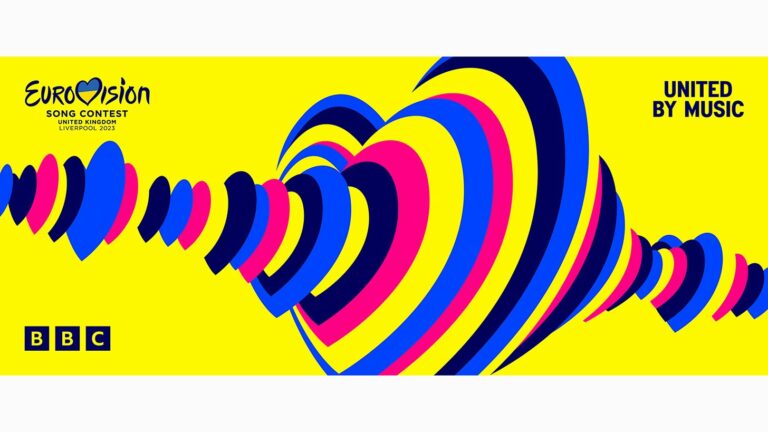The Eurovision Song Contest reached 162m television viewers across its 3 live shows in Liverpool.
The show, which was hosted on behalf of Ukraine also achieved record breaking online engagement.
According to the figures, the viewing share of the Grand Final on the Saturday was 40.9% across host broadcasters.
“With hundreds of millions tuning in to the live shows on EBU Member channels and record-breaking numbers engaging with the songs and artists on our different digital platforms, the Eurovision Song Contest has never been more popular,” said Noel Curran, EBU Director General.
“Our thanks go to the BBC who worked closely with UA:PBC for organising this incredible showcase of Ukrainian culture and the diversity of European music and creativity. ”
The BBC also delivered its largest Eurovision Song Contest (ESC) audience on record, with an average of 9.9m viewers watching the Grand Final on BBC One, up 12% on 2022, with a 63% share of viewers.
“We are all incredibly proud to deliver three amazing live shows for record-breaking audiences across globe,” stated Tim Davie, Director General of the BBC.
“The numbers speak for themselves and are a testament to the hard work of our teams at the BBC and our colleagues in Ukraine. This was a Eurovision Song Contest like no other and we couldn’t have been more proud to showcase Ukraine and Liverpool to the rest of the world.”
Broken down by demographic, viewing share amongst 15-24 year olds was 53.5%, 4 times higher than the 38 public service broadcast channels’ average (13.8%).
“I am very glad that so many viewers all over the world have watched this year’s unique Eurovision Song Contest,” said Mykola Chernotytskyi, Head of the Managing Board of Ukrainian EBU Member UA:PBC.
“We know well what massive efforts have been made to produce the shows at such a high level. I am convinced that they will become an example for future host countries of the Contest. I am proud of our collaboration with the BBC, hosting this Eurovision on behalf of Ukraine and showing the world the variety of Ukrainian and UK cultures.”
Social Media
Digitally, 7.6m watched the Grand Final live on YouTube, with 3.2m live views of the Semi-Finals.
On TikTok, the show’s Official Entertainment Partner, the 3 live shows were viewed 4.8 million times.
On the platform, 105m unique accounts were reached during the 2 weeks of the event, with 315m on the official Eurovision account – up 40% year-on-year.
Videos on TikTok using the hashtag #Eurovision2023 have been watched 4.8 billion times.
There were 45m unique viewers from 232 countries on YouTube, while 32m unique accounts were reached on Instagram.
29m people saw content from the official Facebook page.
According to ESC, across the 4 social channels, videos were watched almost 540m times during the weeks of the event – double last year’s figure.
Economic impact for Liverpool
Merseyside Police said that an additional 500k visitors came to Liverpool in the fortnight running up to the contest.
This included 1,100 journalists from more than 50 countries.
Coverage of the event grew 20% year on year, with over 150k articles written about the ESC in May alone.












